#institution mention
Text
i love you nonspeakers. i love you nonverbal people.
i love you nonverbal people who prefer to be called nonverbal. i love you nonspeaking people who prefer to be called nonspeaking. i love you nonspeaking nonverbal people who tired of debate about terminology or can’t keep up with it and just want be heard and communication rights respected.
i love you people who not speak ever since birth ( hi! ). i love you people who use to speak but experience regression / catatonia / burnout or with degenerative physical disabilities. i love you nonspeaking nonverbal people with acquired disabilities.
i love you multimodal communicators. i love you people with complex communication needs. i love you apraxic people who are unreliably speaking. i love you minimally verbal people. i love you semiverbal people. i love you speaking people with selective mutism with intermittent speech ( who listen to us and not speak over )
I love you nonspeaking nonverbal autistic people. i love you nonspeaking / nonverbal people with other intellectual & developmental disabilities. i love you nonspeaking / nonverbal people with apraxia / dyspraxia ( full body or apraxia of speech ) . I love you nonspeaking nonverbal people with brain injury with stroke with aphasia with genetic disorders. i love you nonspeaking / nonverbal people with mental health disabilities that affect language ( eg schizophrenia ) .
I love you AAC users. I love you users of text based AAC. I love you users of picture based AAC. I love you users of low tech AAC. I love you people who can’t afford the big expensive robust systems and rely on free apps or low tech for that reason. I love you people who need small grid size. I love you people who need visual accommodations to AAC like high contrast. I love you people who need alternate access like switch , eye gaze , head track , joystick , partner assisted scanning to make AAC accessible. I love you nonspeaking / nonverbal people who use sign languages. I love you PECS users. I love you letter board users. I love you people who need human support to use AAC , people who use methods like FC and RPM and S2C and all the “ discredited ” method that are constant at risk of being take away from you.
I love you nonspeaking nonverbal people who haven’t found a way to communicate with words that works for them yet. i love you people who communicate mostly or entirely with behavior with gesture with pointing with vocal sounds not words. i love you people who only way communicate is what the system calls “challenging behavior.” I love you people who communicate through violent meltdown, who SIB and hurt others , run away unsafely , destroy property etc and who are punish institutionalize incarcerate or other abused oppressed instead of helped find other way to communicate. i love you nonverbal nonspeaking people who won’t ever see this post, who under institution control or informal more subtle control and don’t have access to social media , or who disability make social media hard , or who just don't like / have interest in being on here (was me for a while !)
I love you nonverbal and nonspeaking people who have found a home in the nonverbal / high support need community on here and who feel like experience is represent. i love you nonverbal and nonspeaking people who have found a home in offline AAC / nonspeaking world like CommunicationFirst and the spellling to communicate conferences. I love you nonverbal and nonspeaking people who not find their " home " in the disability / nonverbal nonspeaking community yet , who not see own experience represent anywhere.
i love you nonspeakers of color. i love you nonspeaking nonverbal queer and trans people. i love you physically disabled nonspeaking / nonverbal people. i love you mentally ill / Mad nonspeaking nonverbal people. i love you poor nonspeaking nonverbal people. i love you nonspeaking / nonverbal people not from global north.
i love you nonverbal people. i love you nonspeaking people. we are great and we deserve to be heard.
#sorry if post sound bias / prioritizing nonspeaking term over nonverbal by writing it first or sometimes forget write both#prefer nonspeaking and instinct is write first but both equally good!#institution mention#long post#nonspeaking#nonverbal#semiverbal#autism#i/dd#disability#lav talkz
819 notes
·
View notes
Text
Psychiatrist called to check in today. She keeps suggesting to my mom to institutionalize me because I'm not doing well in school. The fuck
0 notes
Text
anyway bella was 18 and pregnant for only 28 days before she was giving birth.
twilight is a horror saga.
#twilight#i hardly ever Post My Opinion as far as what I think of Smeyers choices but holy fuck did she drop the ball on this one#if you're going to subject my girl to the horrors#make the horrors better than Robitussin#the sheer fuckery of writing her character already parentified by renée#and already disregarding of the institution of marriage and family#wouldn't want to start one#not to mention the body horror of speed running a lethal pregnancy#to me eclipse and breaking dawn don't exist#ez rambles
562 notes
·
View notes
Text
You see, Martin says 'I grieved for you' to Jon, but this doesn't do justice for just what he would have gone through.
As most people know, having a loved one in hospital is horrible, but Jon's case is an entirely different thing. Assuming Jon was initially taken to a hospital in Great Yarmouth, it would've taken Martin a while to get there, even if he left right away. He might have missed Jon's emergency treatment, but he certainly didn't miss the worst of it.
Many people assume that CPR is a quick, simple, lifesaving procedure, it is not. Jon was found not breathing, and without a pulse, so he would have had at least 20 minutes straight of CPR, and that messes up a body. On a person as weak as Jon it would badly break ribs, and cause a lot of bruising. Even if Martin didn't have to watch Jon's chest be crushed to no avail, that type of damage is often visible.
I don't know if you've ever seen a dead body, but it's different to an unconscious one in every way. Jon of course, was not dead, but he would absolutely look it. As I'm sure you know, blood being pumped is what keeps the body warm, and breathing accounts for a large part of what we perceive as living, so the absence of both of these, especially in a loved one, is jarring, and likely to send anyone into shock
In lots of TV shows you see doctors calling deaths, but in reality it's actually quite a difficult thing to diagnose. It's not a quick check of the pulse and you're done, there's a lot of tests; there are many conditions that can look like death. In Jon's case his mind and nerves were still active, meaning it would have been picked up on fairly quickly, but Jon would have been assumed dead until these tests were completed.
The thing with a case like this, is there's nothing the doctors can feasibly do; as Elias says, it's an unknown quantity. The most likely course of action would be to make him as comfortable as possible, and redo the death checks every so often. There would be no hope for his recovery, but legally the hospital would have to do this, and would be able to offer very little comfort.
Although of course you want your loved one to survive, many family members of coma patients confess to hoping that they'd just die. The limbo of waiting is impossible to process, and having them there but having no way to communicate with them can be excruciating. There's no way to properly grieve for someone if you always have it in the back of your mind that they could wake up.
Giving up on someone like that is terribly and awfully painful. You can tell them you're sorry all you want, but you'll always be thinking about how they'd have wanted you to stay. Having to create both sides of an interaction like that when truly you're in control of neither is simply impossible to recover from.
Every action Martin took after Jon's death was justified, logical, even. To succumb to the lonely after leaving the man you love, sentencing him to die alone?
It feels right.
#I will NEVER stop going on about the coma storyline...it was just so GOOD#My mum was a nurse I used to want to go to med school and I grew up with many relatives in the hospital so my brain says DETAILS#It's just the most exquisite form of torture for the characters <3#tma#the magnus archives#the magnus institute#Jonathan Sims#martin blackwood#Jmart#jonmartin#tma analysis#tma posting#tma the end#mag 120#mag 121#Mag 122#tw hospital#tw injury#tw coma#tw mention of death
3K notes
·
View notes
Text
Eldorado: Everything the Nazis Hated
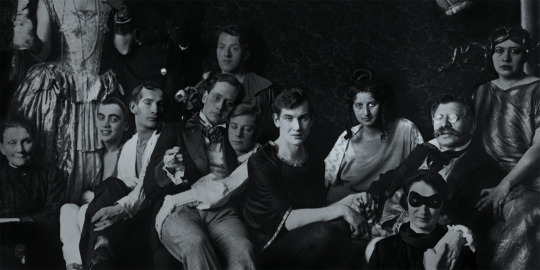
Someone recommended the documentary film, Eldorado: Everything the Nazis Hated, from Netflix, in the notes to that post about JKR's holocaust denialism. It is so, so worth watching.
It's about the culture and people of the lgbtq+ communities in pre-WWII Germany - especially those who frequented the Eldorado club and/or were involved in the Institute for Sexology before the rise of Hitler - and what happened to them once the Nazis came to power.
It starts off as a really wonderful celebration of the sanctuary and sense of changing times and possibilities created by these wonderful, vibrant people. It includes footage of the first trans women to undergo gender-affirming surgery - three smiling trans women, in colour, from nearly 100 years ago. In some cases, there are even interviews with people who survived from that time.
Obviously, sadly, unforgiveably, it does not last. And the documentary tells you far more than I have ever heard before about what exactly happened to LGBTQ+ people over that period of time.
This includes not just gay men and trans women, but lesbians, poly, non-binary, and bisexual folk. And how this related to the Nazis' general philosophies.
It is crucial to understand that the reason terfism and fascism are such close buddies is that their gender ideology (hah! They actually have one) centres around a woman's role being to breed a pure, Aryan race. So they must only sleep with their husbands, they must not remove themselves from the breeding pool by sleeping with each other, and similarly men have a duty to sire children (if they are of good breeding stock), so sleeping with other men, spreading their 'seed' indescriminately, or taking on the characteristics associated with women - all that threatens the central Nazi thesis that they must create and protect the 'superior' race.
This is why transphobia is and always will be gender essentialism, sexism, and racism bundled up in a trench coat, waiting to spill out. Because of the Nazi roots.
But don't listen to me. If you have the spoons and it would not be too triggering for you, I really recommend watching it.
One of the interviewees, who was a teenager who was falling in love with another boy as the Nazis came to power, tells the story of how they became separated, and how he eventually learned his first love died of starvation in a concentration camp. I wanted to get the exact quote down, but Netflix started playing up when I paused it, so I will just say that he said the reason he wanted to be interviewed was for his lost love, Lumpi. So that Lumpi would be remembered.
For those of us who are able, I think we have a duty to learn about and remember those wonderful, lively people who went before us, and who were cruelly taken away.
The Nazis wanted to erase lgbtq+ people from history. And we can resist that. We can remember.
Obviously content warnings for Nazis, the holocaust, genocide, death, homophobia, transphobia, and footage from concentration camps. It is handled, in my opinion, very well, but may still be difficult to watch. And many of the interviews are in German, so disabled people like me who struggle with subtitles may find it quite draining. But you can pause and watch in chunks.
#eldorado#everything the nazis hated#nazis#lgbtq+ history#institute for sexology#lgbtq+#transgender#transphobia#homophobia#racism#holocause#jkr mention#holocaust denial#death#genocide
130 notes
·
View notes
Text
Imagine This Universe Sam And Alice In University Went To Go See A Band And Omg! There’s This Skrunkly Ass Tired Man With A Posh Voice As The Lead Singer??? Later Sam Will Think Chester Sounds REALLY Like That Lead Singer They Liked So Much
#he mentions it to Alice and all she says is that obviously Chester is a cutie patootie#the magnus archives#tma#the magnus institute#tma headcanons#jonathan sims#sam tmagp#sam tmp#alice dyer#alice tmagp#tmapg#the magnus protocol
135 notes
·
View notes
Note
bonzo bonZO BONZO!!!!!
I’m so afraid right now. What is a bonzo. Why are there so many of it. What is it doing here.
#magposting#answering asks#im shaking and crying in my boots what the fuck is going on#next person to mention mr bonzo is getting fired i swear to god#tmagpod#the magnus archives#tma#tmagp#the magnus institute#mr bonzo
65 notes
·
View notes
Text
Whenever I do a TMA s1 relisten I love love love finding things that ended up changing over the next few seasons as the show became more fully fleshed out. Tim being serious and Sasha being the joker? Iconic. Whatever the fuck entity was leaving bags of doll heads and prayers on some random doorstep? Who even are you. How could you do that. What’s your number.
Anyway I need more of these to keep going thanks
#ikik that entity is supposed to be the flesh but I literally can’t see how idk why#Kieran’s statement being Extinction foreshadowing is my fave theory (even tho it’s def not true)#the Tim thing is only mentioned once in the Antonio Blake/Oliver Banks ep#but John says that he asked Tim to do the follow up because he wasn’t sure if one of the others had done it as a ‘bit of hazing’#and I love that#bc not only is Sasha a joker in that world#so is Martin#maybe plotholes are the real parallel universe ngl#tma#the magnus archives#jonathan sims#jarchivist#martin blackwood#sasha james#tim stoker#the magnus institute#Elias Bouchard
68 notes
·
View notes
Note
Not sure if you ever answered this (if yes, I'm very sorry) but would the effects of the nysm au significantly impact the skip button ending? 👀👀👀
I think it would, a little. Not the end result, but definitely on an emotional level, especially from Stanley’s perspective.
Since The Narrator’s appearance is tied directly to his emotional & mental state, Stanley has a front row seat to Narry’s gradual deterioration. And it isn’t pretty. 😬 Plus it double-sucks to have him loose his sense of self right when being visible finally made him start to feel Real.
I’ve always wanted to a NYSM ‘timelapse’ sequence, showing how he changes with every button press. I have a very specific…interpretation of this ending. Hopefully I’ll get to it sometime. :3
#& for folks who’ve seen me mention that White color = Bad#It has everything to do with the skip ending :)#asks#nureyev-steel-institute#nysm!au#now you see me au#Tsp
119 notes
·
View notes
Text
hoooooooooo boy, tmagp 4 go-
this time its becoming apparent that there are some themes and clues that tmagp wants us to notice, the sections stand out, begging for attention
like the recurring theme of bones, and blood, and gore in general (it might be too soon to tell exactly what themes are leading to, but they are definitely there)
the violin could fit right in grifter's bone with it's affinity to music and violence
(the music feels aligned to circus over spiral or web
tho there are elements of the web what with the mind control, but i fear all fears possess a certain degree of control, as such
the violence feels more of the slaughter variety rather than the hunt, though you could make a valid argument for flesh as the words 'sacrifice', 'payment' and 'creature with needs and purposes of its own' do stick in mind
once again i do not think that tmagp follows the same format as the smirke's fourteen (or 15) , i merely use them as parallels to better explain what aspects of the episode sticks out to me (and for me refer back later on))
as other listeners have noted, another theme that tmagp in general follows, is 'obsession', rather than tma's 'fear'
i feel this is also paralleling (intentionally or not) the audience's own listening habits and motives
we first consumed the magnus archives for its content of horror
and yet we are back for the magnus protocol like we never left, and perhaps
we never did
the statement's first person pov depicts a truly horrific picture of the slaughter, of the violence that the violin demands
and his descriptions of the mania on the audience's faces too
it's eerily reminiscent of the france's dancing plague
enough about the statement, lets talk about my boy sam and his co-workers, and their workplace in general
there's a protocol surrounding the magnus institute? interesting interesting, very similar to the police division daisy and basira were part of, the unofficial supernatural division
is this like the civil servant version of such?
another thing that is interesting; how is freddy getting these statements incidents? like sam asked, how exactly does a letter from the 18th century end up in the system?
i don't think gwen's answer is satisfactory (and we weren't meant to either), sure someone might be updating the archives website for reasons unknown but rarely in magpod is something a dead end, every little thing is a clue, a small part of the larger picture
so how exactly does a letter from the 18th century is in freddy's system?
perhaps an 'avatar' or the equivalent (such people are suggested to exist in tmagp universe, like the tattooist from daria's statement)
or maybe the fears themselves manifest in phenomena that upload relevant content to freddy
colin my guy, still being iconic and not trusting tech, hats off to you, the only real character in the whole show
never trust any piece of technology older than paper
the video of lena that gwen got in the end? weird? yeah, fuck yes, but how did she even get it? is there any sort of personal communication available on the ancient system? why gwen?
i have so many questions and so many more thoughts, but this is already so long, im gonna write a separate post about tmagp so far, in general
#the magnus protocol#the magnus institute#tma#tmagp#magpod#the slaughter#the flesh#the circus#tmagp 4#samama khalid#gwen bouchard#colin becher#freddy#fr3 d1#themes#tmagp analysis#tmagp 4 taking notes#tw gore mention#lena kelley
57 notes
·
View notes
Text
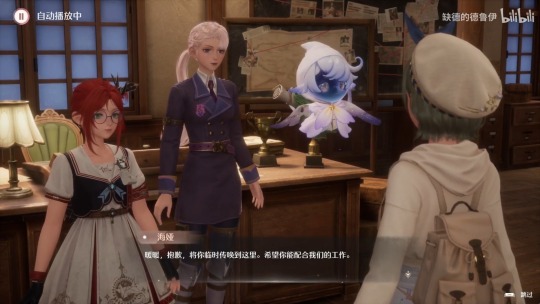
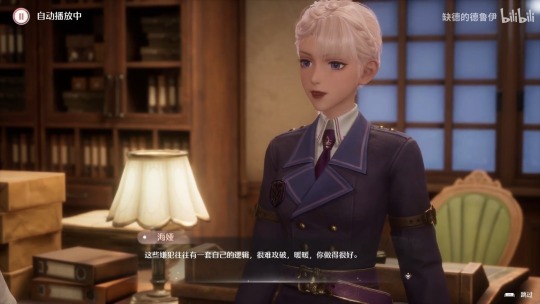
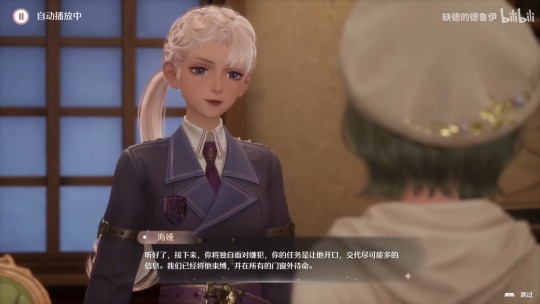
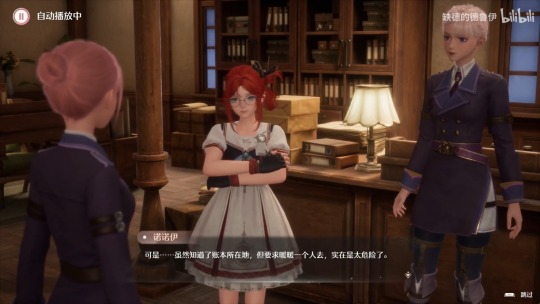
Kimi's bloodline finally broke the curse of smol
#infinity nikki#shining nikki#love nikki dress up queen#this time it makes sense to tag all three#the police captain is named haiya#the same hai as haiying (kimi) and haizhe (helz)#also this is definitely set in ninir/lilith#she mentions cicia's design institute as part of the towns infrastructure#and those who rent you a bike#so this is still miraland#nikkiverse
28 notes
·
View notes
Text
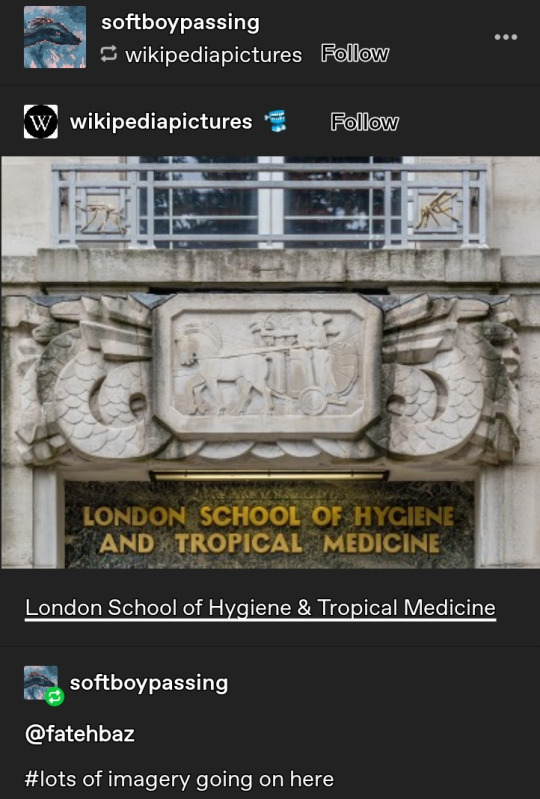
"defending civilization against bugs"
lol the mosquito sculpture

---
Sir Ronald Ross had just returned from an expedition to Sierra Leone. The British doctor had been leading efforts to tackle the malaria that so often killed English colonists in the country, and in December 1899 he gave a lecture to the Liverpool Chamber of Commerce [...]. [H]e argued that "in the coming century, the success of imperialism will depend largely upon success with the microscope."
Text by: Rohan Deb Roy. "Decolonise science - time to end another imperial era." The Conversation. 5 April 2018.
---
[A]s [...] Diane Nelson explains: The creation of transportation infrastructure such as canals and railroads, the deployment of armies, and the clearing of ground to plant tropical products all had to confront [...] microbial resistance. The French, British, and US raced to find a cure for malaria [...]. One French colonial official complained in 1908: “fever and dysentery are the ‘generals’ that defend hot countries against our incursions and prevent us from replacing the aborigines that we have to make use of.” [...] [T]ropical medicine was assigned the role of a “counterinsurgent field.” [...] [T]he discovery of mosquitoes as malaria and yellow fever carriers reawakened long-cherished plans such as the construction of the Panama Canal (1904–1914) [...]. In 1916, the director of the US Bureau of Entomology and longtime general secretary of the American Association for the Advancement of Science rejoiced at this success as “an object lesson for the sanitarians of the world” -- it demonstrated “that it is possible for the white race to live healthfully in the tropics.” As Timothy Mitchell writes: “In 1915, the year after the canal’s completion, the newly established Rockefeller Foundation took over the mosquito campaign from the U.S. Army and launched a worldwide program" [...]. The [...] measures to combat dangerous diseases always had the collateral benefit of social pacification. In 1918, George Vincent, president of the Rockefeller Foundation, candidly declared: “For purposes of placating primitive and suspicious peoples, medicine has some decided advantages over machine guns." The construction of the Panama Canal [...] advanced the military expansion of the United States in the Caribbean.
Text by: Fahim Amir. "Cloudy Swords." e-flux Journal Issue #115. February 2021.
---
Richard P. Strong [had been] recently appointed director of Harvard’s new Department of Tropical Medicine [...]. In 1914, just one year after the creation of Harvard’s Department of Tropical Medicine, Strong took on an additional assignment that cemented the ties between his department and American business interests abroad. As newly appointed director of the Laboratories of the Hospitals and of Research Work of United Fruit Company, he set sail in July 1914 to United Fruit plantations in Cuba, Guatemala, Honduras, Costa Rica, and Panama. […] As a shareholder in two British rubber plantations, [...] Strong approached Harvey Firestone, chief executive of the tire and rubber-processing conglomerate that bore his name, in December 1925 with a proposal to conduct an extensive biological and medical survey of the interior region of Liberia. Strong found a receptive ear. Firestone had negotiated tentative agreements in 1925 with the Liberian government for [...] a 99-year concession to optionally lease up to a million acres of Liberian land for rubber plantations. [...]
Nearly all of the [Harvard tropical medicine] department’s expeditions were to industrial plantations in the making. […] [I]nfluenced by the recommendations and financial backing of Harvard alumni such as Philippine governor Gen. William Cameron Forbes and patrons such as Edward Atkins, who were making their wealth in the banana and sugarcane industries, Harvard hired Strong, then head of the Philippine Bureau of Science’s Biological Laboratory, and personal physician to Forbes, to establish the second Department of Tropical Medicine in the United States [...].
Strong and Forbes both left Manila for Boston in 1913. Strong began assembling a team of researchers and a course of instruction to take advantage of the increasing overseas presence of US firms. Forbes became an overseer to Harvard University and a director of United Fruit Company, the agricultural products marketing conglomerate best known for its extensive holdings of banana plantations throughout Central America. […] In 1912 United Fruit controlled over 300,000 acres of land in the tropics [...] and a ready supply of [...] samples taken from the company’s hospitals and surrounding plantations, Strong boasted that no “tropical school of medicine in the world … had such an asset.” “It is something of a victory for Harvard,” he argued. “We could not for a million dollars procure such advantages.”
Over the next two decades, he established a research funding model reliant on the medical and biological services the Harvard department could provide US-based multinational firms in enhancing their overseas production and trade in coffee, bananas, rubber, oil, and other tropical commodities. [...] As the expedition set sail for Monrovia, Strong wrote in his diary that he hoped their efforts would push the United States to “exert a more stimulating influence upon the development of the … country and its people” as it had in the Philippines, Panama, and Puerto Rico. [...] Harvard’s Department of Tropical Medicine was thoroughly entangled in the material relationships – transportation infrastructure, labor regimes, and commodity production – that were instrumental in advancing the interests of firms like United Fruit, Firestone Tire and Rubber Company, and the American Chicle Company as they transformed landscapes across the globe.
Text by: Gregg Mitman. "Forgotten Paths of Empire: Ecology, Disease, and Commerce in the Making of Liberia's Plantation Economy." Environmental History Volume 22 Number 1. January 2017.
#literally that post i made earlier today about frustration of seeing the same colonial institutions and leaders showing up in every story#about plantations and forced labor my first draft i explicitly mentioned the harvard school tropical medicine and kew royal botanic garden#abolition#ecology#imperial#colonial#bugs
80 notes
·
View notes
Text
the anti queer Elias argument is so funny to me. “He’s not your queer icon.” Bestie name me one cishet Elias fan. People project onto their faves and there’s nothing wrong with that
#not to mention#if the TMA team really didn’t want people thinking that#Ben Meredith and Alasdair Stuart wouldn’t play into it like they do#i also could write an essay on why Jonah Magnus was 100% queer#TMA#the Magnus archives#lgbt#lgbtq#elias bouchard#jonah magnus#the Magnus archive#the magnus institute#the magnus pod#magpod#do not archive
537 notes
·
View notes
Text
The "I'm 30 I don't kin anything" tweet holds a special place in my heart because one time I joked about kinning Jon and then I almost immediately found a corpse.
I've never claimed to kin anyone since.
#If you don't believe me about this you've clearly never lived in London#This was literally not even close to the weirdest day I've had‚ maybe it's just me but the city's a wild place!#One day I'll tell y'all about the time me and my friends saw a dead man on a bench and then saw him alive later that day....#But the morale of the story is do not kin anyone.... Ever....#tma#the magnus archives#the magnus institute#jonathan sims#tma memes#tma crack#tw corpse#tw death mention
534 notes
·
View notes
Text
Negative experiences with a childhood educational
institution okayyy lmao
These questions are fascinating... the blood part made me think of vampires.

"Viability as subject – none" "Viability as agent – low" "Viability as catalyst – Medium" Compatibility ratings to be an avatar, cryptid hunter, or avatar's henchman maybe?? 👀👀👀
Gerry?!?! Again??? Or different guy? Also cursed objects???
Bro doesn't like dungeons & dragons? L
Is this dungeons & dragons game about to turn real like Jumanji???
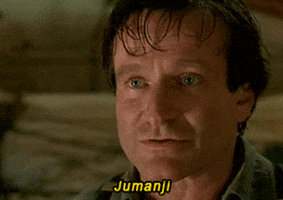
Okay different Gerry I guess. Woahhh cursed dice???
Wtf kinda game uses two d6s? 👀
Oh this piece of shit just pawned off cursed dice on you & asked you to leave. Rude. 😩
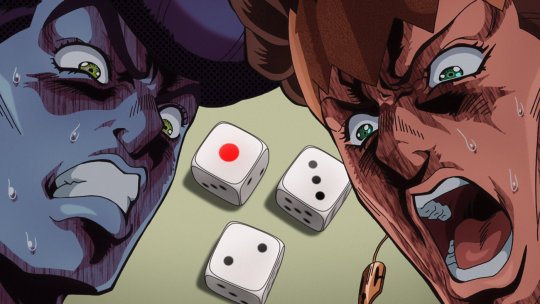
Yes, tell me the next bit please, I'm curious.
You roll them & stuff happens?? Wait, do the dice rolling around in your pocket count as rolling them? I can see how that would be bad.

Gambling on life jfc.
Wait it's not random?? That's wackyyy.
Dice rolling is really fun. I'd probably roll them too just once to see what happens, especially if I didn't have the insight into them being cursed.
Uh oh.... what's gonna happen to Gary? 👀
Oh shit-

Bro said "one more game."

Hmm what are you up to, Lena? 👀 Why is this Nigel guy so important? Why are his companions important?
"Try to keep calm while you're there?" 😶 why?
"Bigfoot’s a good lay"
Adventures with Alice?! 👀 Oh Hell yeah!
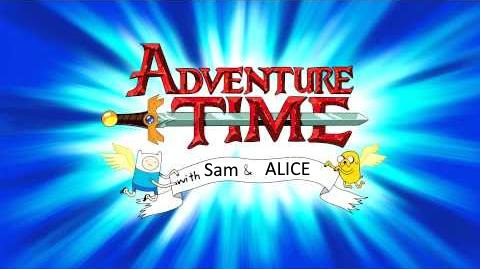
Anyone else suddenly worried about Alice's safety? 👀
#I feel like the institution is clearly in reference to the magnus institute#making avatars with the other scientists at the institute; nothing could possibly go wrong#also yeah no the blood & creatures thing was an interesting mention; guess vampirism made it into the new universe#was really hoping the transcript person would have been sucked into a jumanji game#seems like the dice rolling has to happen with intent though so the dice are aware or the curse on them is aware of when they're rolled#with intent.#Lena playing power enforcement games with famous tv actors; wonder what Nigel Dickerson is up to in secret#also 'Bigfoot’s a good lay' obliterated me lmaoooo#Alice I hope you'll be safe please be safe I'm so worried#mine#op#tmagp liveblog#tmagp 9#tmagp spoilers#tma spoilers#tma#tmagp#the magnus archives#the magnus protocol
34 notes
·
View notes
Text
The Queen of Lies: Her Speech is Nothing

Story Intro | Content Warnings | Mood Board | Vibey Song Lyrics | Ao3
Contains: outdated/problematic/ableist language, icky gender and power dynamics, asylum, death mention, lady whump, betrayal, generally uncomfortable medical setting, statements by the antagonist that allude to sexual assault and fall into both ableism and victim-blaming
Please heed the warnings!
Previous | Masterlist | Next
Word count: 3000 || Approx reading time: 12 mins
Her Speech is Nothing
Teaser: After the darkness of the carriage, it was bright outside despite the lack of sun and the still-falling drizzle, and Bree blinked as her eyes adjusted. Something twisted in her stomach when she realized they were not where she expected. “Where are we?”
Baden spoke quietly to Dr. Gysborne, and Bree didn’t listen.
He brought her back outside, and she let him.
He did not tell her where they were going when he helped her into a carriage, and she didn’t care.
What difference did it make, anyway? She knew where they were going. He would take her back to the house, and she’d be his pretty possession once again, and unless she could find another way out, everything she’d done to escape her fate as Baden Hatchett’s wife would mean absolutely nothing.
The city rolled past, grim and soaked with rain. In a motion stiff and hurried, Baden tugged the curtains closed, concealing the world outside behind a bulwark of maroon velvet. With nothing to look at, Bree leaned against the wall and pretended to sleep. The minutes dragged on, poisoning every thought with guilt and sorrow.
She tried not to think of Jamie, who had to be cursing her very name—she, the silly girl he’d worked for so many years ago, grown into the silly woman who’d ruined his life and his brother’s. And Colette and Geoff? They must be cursing her, too, especially Geoff, for she’d seen the way he and Jamie looked at each other, the way their hands entwined whenever they were at rest.
It took all her self-control not to open her eyes and peer down at her own empty hands and think of the fingers that should have been laced with hers.
No matter how she tried, she could not banish Will from her thoughts.
Will, and how he must be hurting. How he must resent her, too.
“All right, Breanna. Let’s go.”
She opened her eyes. The carriage had stopped, and Baden was holding out his hand.
With no other choice, she accepted it.
After the darkness of the carriage, it was bright outside despite the lack of sun and the still-falling drizzle, and Bree blinked as her eyes adjusted. Something twisted in her stomach when she realized they were not where she expected. “Where are we?”
It seemed for several long moments that Baden would not answer.
“We’re at the hospital,” he said, pulling her forward. “Were you not listening? Gysborne suggested I take you to another doctor. To ensure you’re well enough to…” He paused. “Return.”
“I feel fine,” she said, although it was perhaps the most blatant lie she had ever told. “I want to go back. I only want to rest. I want to go home.”
Home. Bree felt sick. Home was not that cold and draughty manor with its locked windows and doors. Home could not be found in a four-poster bed shared with a man who didn’t want to be there, either.
Home was a tiny townhouse with thin, warped windows and uneven floors. Home was sunlight streaming through too-old curtains and mingling with the earthy-scented steam of freshly brewed tea. Home was a warm hand in hers, worn books with the pages falling out, generous laughter, and happiness like she had never known before.
Home was Will.
But, she tried to comfort herself, the sooner she made it back to the house she’d once called “home,” the sooner she might make it back out.
“I am concerned, and I want you to be well,” said Baden, his fingers crawling to her upper arm. “Come along.”
The hospital was almost pleasing to look at, rather like a house: a sprawling manor with glass windows and lovely, old trees dotting its grounds, tendrils of ivy swirling up the red-brick walls. On a sunny day, in the brilliance of summer, it might have looked homely. Welcoming.
Today, in the autumn gloom, it seemed to Bree like the nightmarish, haunted building of a Gothic novel; there was something insidious about the dim light, the choking ivy, the dead leaves scattered on the ground, the bare branches scraping at the air. Something about the shadows and the rain created the impression of bars over the windows—almost as if they had not left the prison at all.
“Good afternoon, doctor.” With a curt nod, Baden greeted the man waiting for them. Behind him, in the doorway, stood a nurse in a stiff white cap.
“Where are we? Which hospital?” she pressed. A sensation like thousands of tiny legs crawling over the back of her neck made her shiver with unease. “Baden, tell me, please—”
“Thank you for being so accommodating,” Baden said to the gentleman, shaking her into silence, “on such short notice. I would like you to examine my wife, Mrs. Hatchett. I have an initial report from Dr. Bernard Gysborne.”
Now there were two of them: the older doctor with cold blue eyes and a red beard peppered with silver, and a younger one with dark hair and a pale complexion. He was silent, watching Bree with a mixture of wariness and pity.
“Of course, Constable Hatchett,” said the older doctor. “I’m Dr. Richards. Please, come inside, out of the rain.”
“Baden,” Bree said, her heart pounding, although she did not know why it protested so, “I want to go home. Please. Now.”
But Baden said, “Once I am convinced of your good health, Breanna.”
“I’m not hurt,” she said, pulling away from the door. “You heard what Dr. Gysborne said. The cut is healing. Please. Let’s go.”
He jolted her forward with an impatient sigh. “Come along.” As they crossed the threshold, the wind began to howl outside, and the rain began to fall in a violent barrage once again. “This is for your own good.”
So he said, yet this examination seemed much the same as Gysborne’s. In a bleakly lit room lined with dusty wooden panels, the younger doctor, whose name Bree had missed, checked her breathing, her heartbeat, her eyesight, and her healing arm, while Dr. Richards asked a series of irritating questions that all had obvious answers—her name, her age, what had happened to her. It seemed to Bree he might have known if he’d simply read Mr. Gysborne’s report. There were a few others, though, that puzzled her: And what is your husband’s name? Where do you live? In what country do we live? What year is it?
“I’ve already been through this,” she said when her patience was wearing thin. By the desk, the doctors spoke quietly to the nurse. She could not hear what they said. “Baden, just show them Dr. Gysborne’s report. He already did these tests. Please, I’m—I’m so tired—I just—”
A crackle of paper had her lifting her head in surprise. Baden had listened; he had done as she said. For once, he had obeyed her.
Dr. Richards scanned the report with a frown.
“This seems insufficient evidence,” said the dark-haired doctor, peering over the elder one’s shoulder. “One prison medical officer’s quick assessment hardly seems adequate reason to—”
“You don’t understand,” said Baden harshly. “It’s much more than what is written here. You want evidence? You shall have plenty.” When he looked at Bree, she quailed again, her mouth going dry when she beheld the grey fire in his eyes. “Ask anyone who has witnessed her behaviour these recent weeks. Even before she was abducted. She forged my signature to join some silly women’s society—yet never once mentioned it to me, never even asked. She repeatedly, illicitly entered the prison under false pretences to visit a known criminal with whom, as far as any of us know, she had never had any contact before. And not just to visit him, but to enter his cell and care for him like she fancied herself some sort of nurse. She was caught, of course, and could not give a single good reason for why she did it.”
“Baden,” Bree whispered, a dreadful sense of cold settling over her body. “Why are you telling them all—”
“The housekeeper reported she wasn’t sleeping and was speaking and behaving strangely. She sent a letter filled with sheer nonsense to one of her friends, feigning a need to prepare for a visit from some fictitious cousin. She lied to me and my superior. She stole a set of keys from a constable. And she helped that blasted criminal escape.”
Dr. Richards gaped at Bree in horror, while the younger doctor’s face turned a brilliant shade of red.
“She was seen in men’s clothing, gallivanting around town and fleeing from those who tried to help her, and when we found her again today—just look at this!” He took hold of her arms and wrenched them both upwards, displaying the cut and the Iustitia aecum emblem.
Bree tried to jerk out of his grasp, to no avail. “Baden, what—”
“And this!” Releasing her arms, he forcibly tilted her chin up to expose the bruise, that scarlet letter on her neck that she should have known would spell her doom—the evidence of her infidelity, illuminated for these two strange men who now would not take their eyes off her.
Mortified, Bree jerked from his grasp and leapt to her feet.
But Baden was quick and strong as he always was; he apprehended her easily. As the nurse darted to block the door, Bree cried out, struggling to fight Baden’s grip while he held her still. No one else seemed to realize that Baden was clenching her tightly enough to hurt.
“Does any of that,” Baden snarled, his grip constricting even more as he pointed at the bruise on her throat, “sound like the behaviour of a sane person? Would a woman in her right mind let such a beast defile her in this way?”
Bree’s vision went, for an instant, pitch-black.
“It is clear to me,” Baden said, letting go only long enough to spin her around and force her to face him, “that you are very ill, Breanna, and I cannot help you through whatever hysteria you are presently suffering through.”
“Hysteria?” she repeated, as black spots threatened to eat away at her consciousness again.
“The lies. The sneaking around. The forged signature. Running away. The marks that bastard left on you.” Without warning, he let go. “Everyone agrees that you have been out of sorts. Officer Lenton. Mrs. Dennison. Your friends, even the silly one married to the soldier who tried to cover for you—even she was swayed in the end. It cannot be denied that you are unwell. And dangerously so.”
“Dangerously so…” she echoed. “What are you saying, Baden?”
“I am saying…” he began, his voice tight. No emotion leaked through now; he’d locked it away behind its usual frigid barricade. “I’m saying that you need help that I cannot provide, but I cannot trust you in our home, nor can I, despite all you’ve done, have my wife as an inmate in my prison.” He swallowed, every muscle rigid, his throat bobbing. “You have left me no choice.”
It sank in.
“No, Baden, please don’t do this.” Bree’s eyes finally took in what was all around her, what she had missed because she hadn’t been paying attention: boxes and papers stamped with three letters: G.I.A.
She looked frantically around again, seeking the answer.
Greyhurst Insane Asylum.
“You can’t leave me here!” she gasped.
“I can, and I will.” He shook his head. “You expect me to leave you in our house unsupervised? What will you do next? What will I come home to? A pile of ash and rubble? A corpse? A gang of thieves planning their next heist in my sitting room? No. I can’t. You’ve humiliated me, and perhaps you did not know what you were doing. In fact, I’m quite certain you did not. But all trust between us is gone.”
“Don’t,” she begged. “I’m not—I’m not mad.”
“Then explain yourself!”
Bree shook him off, and when, to her surprise, he let go, she backed away. “You’re just going to lock me away? I’m your wife! And I’m perfectly sane! How could you?”
“Do you see this?” Hatchett said, gesturing furiously as she tried to run, only to find herself immediately detained in the arms of the younger doctor. “Do you hear this? How she denies her mental infirmity? How she defies me at every turn? My wife has completely lost her senses.”
“You can’t do this to me!” she gasped, trying to wrench herself free of the doctor. “I’m—not—I’m not—ill!”
“The injury,” Baden said, pointing at her arm. “She did that to herself.”
Time seemed to freeze.
No. No. He couldn’t be saying that—couldn’t be using her own lie against her.
“Perhaps a straitjacket would be best?” Dr. Richards mused, utterly calm while Bree’s world crumbled around her. He rummaged in his leather bag for something Bree couldn’t see. “If she’s a danger to herself? Nurse Dugford, if you please—”
A straitjacket. One of those—god, one of those wicked contraptions they made poor, unfortunate folks wear that bound their arms—
“No!”
Bree’s shriek sliced through the air. Even Baden took a step back upon hearing the terror in her voice.
“I lied,” she said, her voice trembling. “I didn’t do it. I didn’t cut my arm.”
Baden watched her, face impassive.
“He did it to me,” she choked, letting her limbs end their struggles, letting her body surrender alongside her resolve. As she gave her husband the story he wanted to hear. The only one he would believe. “It was him. He hurt me.”
“I knew it,” Baden breathed. His eyes flashed. “Why did you lie? Why do you insist on protecting him? After all he’s done?” He took a step toward her again. “What is he to you?”
Bree began to sob. How could he ask her that? For words she could not say, for an answer she could not give?
Her legs gave out beneath her, forcing the young doctor to cautiously release her. “Nothing,” she said. The word hurt. “He’s nothing to me. I was just afraid.”
Baden flung his hands into the air. “Nothing she says makes a whit of sense. This is the third story she’s given today to explain the cut. First, it was a pair of strange boys. Then she cut her own arm. Now, she didn’t.” His breath, too, was rapid. “He means nothing to her, but she lies and lies, all to save his sorry soul from the gallows.”
Gallows.
The gallows.
“The—what?”
But Baden ignored her, as if he hadn’t shattered her completely with that single word. But it was wrong—that word was wrong. What would Will’s sentence have been if she hadn’t helped him escape? Labour. Prison. Some other miserable, drawn-out fate.
Execution was never supposed to be the end of his story. Never.
What did he do to you?
He made good on his threats, didn’t he?
Would a woman in her right mind let such a beast defile her in this way?
No matter what she said, no matter what she did, Baden would only believe that Will had taken her by force in every sense of the word. And that was a crime a man like Baden Hatchett would never let slide. Not against his property.
A crime for which Will was now sentenced to pay the ultimate price.
You did this. A smug, sneering voice sang out from the recesses of her psyche, vindicated in every accusation that had hovered half-hidden in her thoughts from the first time she and Will kissed. No, even before. Long before—but she had buried them deep. You couldn’t stay away. You couldn’t keep your ridiculous whims to yourself. Couldn’t keep your legs closed. Couldn’t help yourself, and for what? Now, once Baden gets his hands on him, he’s dead.
Dead.
“You can’t do this!” Each word burst forth as if it might rend a hole in her very chest. “You can’t. He didn’t—he wasn’t—and I’m—Baden, please, you must listen, I’m not mad, and—and you can’t—you can’t—”
Will, dead, for being a thief. For stealing her away, for hurting her, for committing other atrocious crimes Bree knew he would never, never even think of.
And she, locked up for her lies.
“You will find,” said Baden coldly, “that everything which has transpired today is well within my rights under the law.” He pointed toward the paper still clutched in Dr. Richards’ hand. “Two signatures, superintendent approval, and reasonable evidence to make a charge.” His gaze grew even colder. “Entirely lawful, as a constable and as your husband. And so you will remain here at Greyhurst until you are deemed ready to be in society again.”
“But you can’t,” she said. “I’m not insane. I’m not.”
Will, dead, for daring to look at Constable’s Hatchett’s wife. For being the only person Bree had ever seen stand up to her husband.
She, locked up for loving him from the very start.
Baden said, “Yes, you are. But you will get better. In time.”
Will was dead, and she was the one who had killed him.
Like an arrow nocked and fired, her last and most abhorrent lie had sealed his fate.
Now, Baden would lock her away, hide her treachery, infidelity, and insanity from the world, so she could never, ever make it right.
Bree could only watch in horror as Dr. Richards, who was no mere doctor but the superintendent of the asylum, signed his name alongside Gysborne’s. As he beckoned the dark-haired doctor to do the same. As Baden took the pen and added his own signature, then wrote a final name that belonged to none of them. When Dr. Richards read the document out loud, Bree found she could not move a single muscle, even as her mind screamed and screamed and screamed.
“We, B. Gysborne and A.A. Dale, certified medical doctors, attest that we are graduates and practitioners of medicine; that at the request and in the presence of Medical Superintendent G. A. Richards, we have carefully examined Breanna Hatchett in reference to the charge of insanity made by Constable B. Hatchett and find that she is insane, and by reason of said insanity should be confined forthwith to a medical facility until it is determined that her mental infirmity has been cured.”
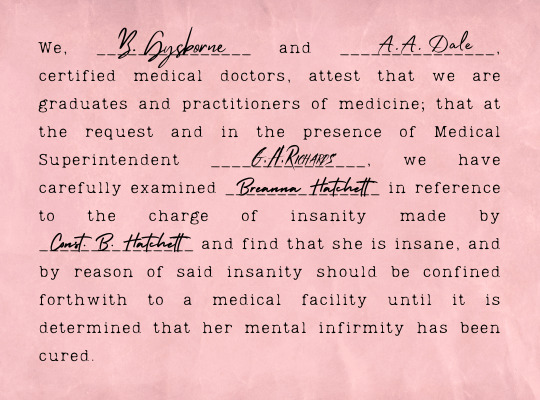
End note: If you are very uncomfortable with the asylum/mental health setting: Ch. 27 is from Will's POV so it's only discussed/mentioned, and the last chapter taking place there will be Ch. 29, although it will be mentioned pretty regularly after that.
Previous | Masterlist | Next
Taglist (please let me know if you’d like to be added/removed!)
✨ @starlit-hopes-and-dreams | @clairelsonao3 | @gala1981 | @pleasestaywithmedarling | @kixngiggles ✨
#lps the queen of lies#whump#whump story#whump writing#original writing#original story#original content#lady whump#guy whump#romance#angst#tw ableist language#tw asylum#death mention#betrayal#tw mental health institution#i don't know exactly how to tag for 'historical mental health language'
21 notes
·
View notes